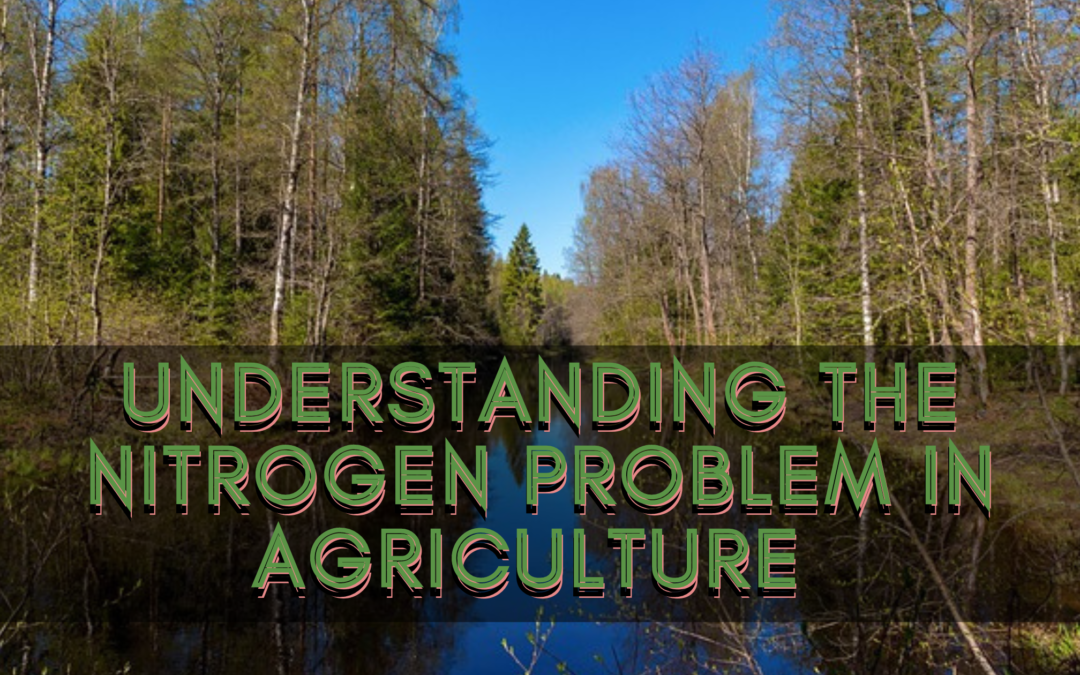The nitrogen problem in agriculture exists due to the use of synthetic nitrogen fertilizers, which are created using fossil fuels. Nitrogen fertilizers tend to greatly contribute to atmospheric pollution and impacts on the climate in the way they get produced. The process of manufacturing synthetic fertilizers is highly intensive; 2 litres of diesel are required to yield a kilogram of nitrogen.
The energy used for the manufacture of fertilizer in the year 2000 was equivalent to 191 billion litres of diesel. The same is expected to rise to about 277 billion by the year 2030. This makes fertilizer manufacturing a huge contributor to climate change. However, its one that is mostly ignored. Nitrogen fertilizers also tend to emit N2O (nitrous oxide) which is about 300 times more destabilizing to climate system in comparison to CO2 (carbon dioxide).
The extractive agricultural systems that rely on fossil fuels is to a great extent impacting Earth’s systems and ecological processes. Loss of biodiversity and continued release of nitrogen pollution from synthetic fertilizers continue to push the planet into danger zone. The impact has lead to species extinction, loss of biodiversity, and erosion of genetic diversity and in turn Earth’s stability. All these are happening due to too much focus on the intensive industrial agricultural model. In order to address this catastrophe a more sustainable agricultural model should be adopted to help address these challenges.

A shift to Biodiverse Ecological Agriculture
The scientific and viable response to the nitrogen challenge is considering a shift from engaging in fossil fuel chemical agriculture to the adoption of biodiverse ecological agriculture and regenerative farming practices. Transition strategies should be created that encourages farmers to shift to regenerative agriculture which improves soil health and also preserves biodiversity. Regenerative agriculture is a chemical free way of farming that is suitable for the planet’s and furthermore humanity’s health. It is important to note that the longer and industrialized agriculture continues to operate and proliferate, the more biodiversity, climate security, and Earth system resources and stability will be lost.
Regenerate Soil and Soil Nitrogen
Soil is a living system and there are multiple ways in which soil can be regenerated, and it is possible for soil nitrogen to heal the nitrogen cycle. Due to prolonged use of artificial fertilizers, it is evident that the use of such contributes to reduced fertility and unsustainable food production. It also contributes to water scarcity, desertification, and climate change, and more. The use of chemicals has created dead zones in the oceans and that has led to loss of marine species.
The more artificial fertilizer used the higher the quantity required for subsequent farming seasons, leading to degraded soil. Since synthetic fertilizers are manufactured using soil fossil fuels, they end up contributing to the disruption of carbon cycle. The process also disrupts the nitrogen and hydrological cycles since industrial agriculture requires 10 times more water to produce the same amount of food in comparison to organic farming.
As a way of addressing the effects of climate change effects; farmers should explore more on regenerative agriculture. Visit our EAT Community to learn more!



